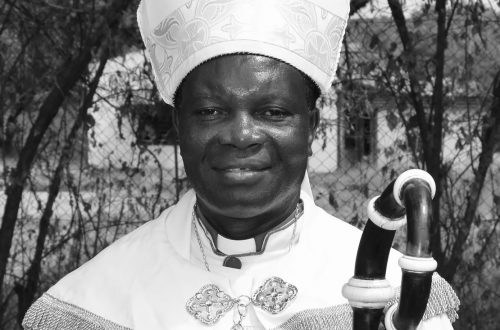 In 2006 Chai Feldblum—whom Pres. Obama would later appoint as a commissioner of the EEOC—wrote that gay rights create a bona fide conflict with religious liberty. In an interview that same year, she told Maggie Gallagher that when there is a conflict between sexual liberty and religious liberty, sexual liberty should almost always win. In Feldblum’s own words,
In 2006 Chai Feldblum—whom Pres. Obama would later appoint as a commissioner of the EEOC—wrote that gay rights create a bona fide conflict with religious liberty. In an interview that same year, she told Maggie Gallagher that when there is a conflict between sexual liberty and religious liberty, sexual liberty should almost always win. In Feldblum’s own words,
I’m having a hard time coming up with any case in which religious liberty should win… Sexual liberty should win in most cases. There can be a conflict between religious liberty and sexual liberty, but in almost all cases the sexual liberty should win because that’s the only way that the dignity of gay people can be affirmed in any realistic manner.
The conflict that Feldblum predicted nearly ten years ago is now coming to fruition in case after case across the country, and those cases are being resolved along the lines that she advocated above—in favor of sexual liberty over religious liberty.
Feldblum is but one person in a larger cultural shift that we are witnessing in our country. And that shift is creating conflicts that churches and Christian groups are only just now learning how to navigate.
Lately, I have been getting a number of requests from Christians about how they can prepare for what’s ahead. Even today, I received another request. In particular, folks want to know what steps their church or Christian group needs to take in order to defend themselves from legal action against them.
For that reason, I want to highlight an important resource created by The Alliance Defending Freedom, a legal group that defends religious liberty claims across the country. It’s a 44-page booklet titled Protecting Your Ministry from Sexual Orientation Gender Identity Lawsuits. It’s a legal guide explaining how churches, Christian schools, and Christian ministries can get ready for the inevitable challenges to come. This booklet is very practical and provides a checklist that leaders should work through based on the kind of organization they serve. You can download the booklet here for free or read it below.




19 Comments
davenuckols
Or this simpler plan: (1) don’t discriminate, (2) minister to all, (3) make disciples for Christ.
buddyglass
Seems unreasonable to expect religious ministries to hire employees who are openly engaged in what it (the ministry) considers to be unrepentant sin.
Brett Cody
davenuckols,
Please do not become a minister in the church.
Jeff Meyer
Dave,
Nobody is saying “don’t minister to all”. Nobody is saying “don’t make disciples”. But, in fact, where certain things are concerned, we are duty bound to discriminate. For example, the bible lays our very clear standards for pastors/elders. There are certain people who cannot hold those positions, AND THAT’S OK. Me telling a man who fails the requirements set forth by God that he cannot be an elder is a form of discrimination, but it’s a necessary form of discrimination. And that’s what this is about so please stop mischaracterizing the discussion.
The coming storm is not “you must minister to the LGBTQAI (their acronym, not mine) crowd” – we already minister to them. It is “you must AFFIRM the LGBTQIA crowd”, which is a worldview that the bible clearly condemns, and Christians are duty bound to reject.
Christians are not allowed to condone what God condemns.
Jeff.
Daniel Moody
There is not much value in trying to erect legal firewalls, other than to buy a little time. The terror of Gender will burn through them soon enough. A better bet would be to concentrate on gaining a sound understanding of what a Gender Identity is, and to the educate people. Knowledge is power.
David Phillips
Correct. And at this point, the church has no clue.
David Phillips
I am in agreement that religious institutions should not be subject to governmental penalties if they refuse to compromise their beliefs. I have not heard of anyone suing a restaurant over their “no shoes, no shirt, no service” policy, or the “we reserve the right to refuse service to anyone” statement. I think you’ll find that these recent events were test cases; these gay couples were looking for someone to refuse them service, so they could nail them. It was rumored that the couple involved in the bakery case passed over several gay-friendly bakeries to pick out one who would refuse to serve them on religious grounds.
Having said that, I don’t think you’re going to have much to worry about as far as transpersons are concerned; the writing is on the wall, and transpersons, for the most part, know not to go there. Why would they want to anyway? You guys pretty much showed them the door, and blew any future chance to minister to them when you passed the resolution.
Don Johnson
From 4.1.3 “Because at least one court has ruled that members can voluntarily waive their right to terminate their membership, churches should consider including in their membership policy a provision prohibiting the voluntary resignation or withdrawal of membership once the disciplinary process begins.”
This is spiritual bondage.
Gus Nelson
Don: I am a lawyer. When a State Bar begins disciplinary proceedings, a lawyer can always voluntarily resign. HOWEVER, if the lawyer does so, he is treated as if he were disbarred. In other words, he either effectively disciplines himself or he lets the process work. This is what the policy you are quoting is trying to do. If the member can slip out without being disciplined and without the church being able to finish what it started, the member effectively circumvents the process and avoids discipline and leaves the church powerless to do what is commanded by Scripture to do. Your contention this is “spiritual bondage” puts all the discipline eggs in the members basket and leaves the church without recourse. Even lawyers, lawyers, Don, don’t let their members pull that kind of nonsense.
Don Johnson
Lawyers as a profession can have their own rules on what to do when a lawyer violates their ethics.
The maximum discipline for a church is to disfellowship a member. When a member disfellowships themselves, they have already accomplished all that a church can do. I am not referring to actions such as stealing from the coffers or other crimes which can go to a court outside the church, I am referring to the church’s authority. When a member leaves a local church, the local church has no more authority of any kind over them. To think they do leads to spiritual bondage.
Gus Nelson
The church doesn’t retain any authority over the person in this scenario. What the church retains is the ability to make clear the nature of the person’s disassociation from fellowship. This is why I made the analogy to lawyers. The state bar doesn’t claim to have authority over a member who leaves, but does claim authority to say that the member left on X or Y terms. This document is simply trying to provide churches with the same ability, so that a former member who was being appropriately disciplined can’t complain if the church, when asked (if ever asked), says “that person was being disciplined when they left the church.” In reading the document, the impression I got was churches were being sued for telling the truth about why someone left and the document was trying to provide some basis for protecting churches legally. This has nothing to do with any kind of “spiritual bondage.”
Don Johnson
It is the type of thing that can have everything to do with spiritual bondage. This is because it can involve a disagreement of something the leaders of a church believe is sin while the former member does not believe it is sin.
There are many examples that can fall into this category. Legalists can pile supposed sins on people as a form of control but they go beyond Scripture.
Just as one small example, John Piper apparently does not believe abuse is a reason for divorce, but David Instone-Brewer does. When a person studies Instone-Brewer’s books they can come to the understanding that abuse is a reason for divorce and seek to divorce their abusive spouse, but the leaders of a church that follows Piper might think the divorcing spouse is in sin and it is deliberate and continuing and so subject to church discipline. What such attempt at church discipline really is is spiritual bondage, as I see it.
Don Johnson
From the sample membership agreement:
“For purposes of [the organization]’s faith, doctrine, practice, policy, and discipline, our [minister/executive committee/board of directors] is [the organization]’s final interpretive authority on the Bible’s meaning and application.”
This is a claim to Magisterial status, the same as the Roman and Orthodox church’s claim, that the leader(s) cannot make a mistake in interpretation. I find this claim very scary and extremely contrary to the historic Baptist claim of soul competency, needless to say, I find it ironic that an educator at an institution that claims to be Baptist would promote such a thing.
Christiane Smith
Hi DON,
you make an interesting point, but even the Catholic teaching authority has the humility to say this:
“”Yet this Magisterium is not superior to the Word of God, but is its servant. ”
What is most important is an acknowledgment of the workings of the Holy Spirit in the Church’s understanding of sacred Scripture, that what is received from the time of the Apostles is guarded faithfully, and passed down to future generations of Christian people.
As regards the ‘sample membership agreement’, what is the historical ‘chain’ of authority whereby these pastors and their associates claim to have received such crucial knowledge and holy guidance about how to interpret sacred Scripture? The historical chain just isn’t there.
?
Don Johnson
Any protestant (like me) thinks the institutional (Roman) church had misinterpreted some things in Scripture by the time of Luther in the 16th century, the only question is when it started. (I happen to think it started by the second century with the gentilization of the church.) But we just do not see much importance to any supposed unbroken chain of teaching authority (Magisterium) since we do not believe such a Magisterium exists.
This is why I find it so ironic that Denny would publish a document that suggests such Magisterial-like authority, especially as Baptists believe in congregational church rule.
Don Johnson
From Appendix A “Protestant – Statement on Marriage, Gender, and Sexuality
We believe that God wonderfully and immutably creates each person as male or female. These two distinct, complementary genders together reflect the image and nature of God. (Gen 1:26-27.) Rejection of one’s biological sex is a rejection of the image of God within that person.”
This statement does not recognize the various intersex conditions. Pretending something does not exist does not mean it does not exist.
Daryl Little
Don, nor does pretending that something exists, make it exist.
Don Johnson
If you think intersex people do not exist, I suggest you investigate. Otherwise, you will harm believers that have this condition.
Pingback: